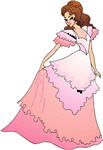|
Từ điển Oxford Advanced Learner 8th
 Cinderella
Cinderella

Cin·der·ella [Cinderella Cinderellas] BrE [ˌsɪndəˈrelə] NAmE [ˌsɪndəˈrelə] noun usually singular
a person or thing that has been ignored and deserves to receive more attention
•For years radio has been the Cinderella of the media world. From the European fairy tale about a beautiful girl, Cinderella, who was treated in a cruel way by her two ugly sisters. She had to do all the work and received no reward or thanks until she met and married Prince Charming.
Word Origin:
from ↑cinder + the diminutive suffix -ella, on the pattern of French Cendrillon, from cendre ‘cinders’.
Culture:
One day the sisters go to a ball (= a grand event at which people dance) at the royal palace, and Cinderella wishes she could go too. Suddenly her fairy godmother appears and says, ‘You shall go to the ball!’ She uses her magic powers to produce a wonderful dress and glass slippers (= shoes) for Cinderella, and makes a coach and horses for her from a pumpkin and four white mice. But she warns Cinderella that she must leave the ball at midnight. Cinderella is so beautiful that the prince dances with her all the time, but at midnight she suddenly runs from the palace, leaving one of her glass slippers behind. The prince sends his servants all over the country to find her by trying the slipper on every young woman’s foot. When at last they find Cinderella the prince marries her.
The story of Cinderella is a favourite one for British ↑pantomimes. The Ugly Sisters are played by men dressed as women. The prince is called Prince Charming and is played by a woman, Cinderella (or ‘Cinders’) has a male friend called ↑Buttons who works with her and secretly loves her.
|
|
|
|
